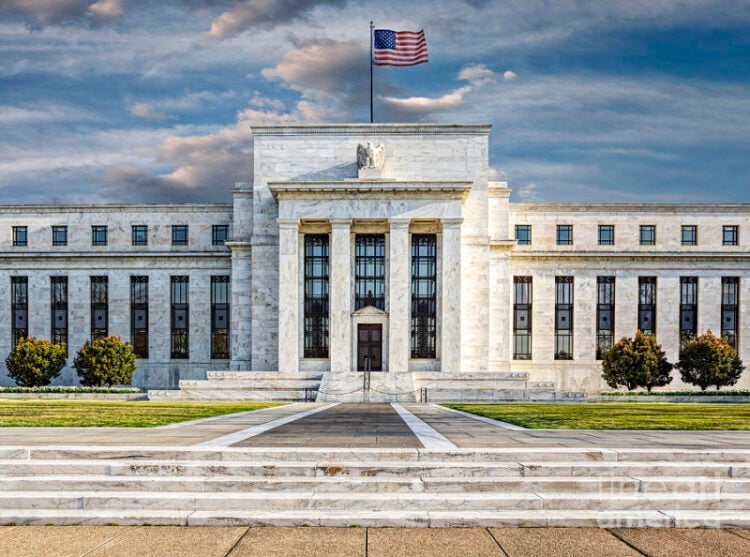Publisher: Maaal International Media Company
License: 465734
WSJ: Trump’s tariffs complicate the Federal Reserve’s position
The American Wall Street Journal reported that the trade war that leads to increased inflation will be more complicated for the Federal Reserve (the US central bank) now, compared to what it was during Trump’s first term.
The newspaper added in a report that while US President Donald Trump is considering imposing bolder tariffs in his second term, a major question looms before the Federal Reserve about the extent to which any price increases can feed the public’s expectations of rising inflation.
The Federal Reserve is currently widely expected, according to the newspaper, to keep benchmark interest rates unchanged at its next meeting, after cutting short-term interest rates by a full percentage point in its last three meetings.
اقرأ المزيد
The newspaper pointed out that since officials cut interest rates for the first time in September, inflation has made unsteady progress toward the central bank’s 2 percent target. At the same time, the labor market has expanded steadily, which has calmed fears of sudden weakness that flared up last summer.
It stressed that when or whether the Fed resumes cutting interest rates depends largely on inflation expectations, which in turn may be shaped this year by whether Trump follows through on his threats regarding tariffs.
It noted that tariffs remain a major uncertain factor in the Fed’s outlook, due to concerns about how they will affect businesses’ and consumers’ expectations for future inflation.
The newspaper mentioned that the Fed certainly ended up cutting interest rates in 2019, when Trump escalated a trade war during his first term in office, as Fed Chairman Jerome Powell and his colleagues feared that the trade war would have a negative impact on business sentiment and investment, which could exceed the potential effects of higher prices resulting from the tariffs.
The newspaper quoted Stephen Kammen, who at the time oversaw the Fed’s international finance department, as saying that those tariffs were relatively small, and that to the extent that they affected economic activity, “they were not inflationary because that period was not inflationary.” However, the newspaper indicated that the Fed is likely to react differently this time after any tariff increases are implemented, because the United States has just gone through a period of high inflation.
Stephen Kamin said that price setters and payers have become more attentive to price pressures than they were in 2018,” adding that he expects the Fed to “handle tariff increases more cautiously this time than last time, by keeping interest rates higher than they would have been had there been no tariff increases.” He added that the Fed rarely changes interest rates based on political outcomes that have not happened, and is unlikely to react until tariff increases materialize.
The newspaper quoted Cleveland Fed President Beth Hammack as saying in an interview this month that Fed officials are closely monitoring inflation expectations, through consumer surveys and market-based measures; because “if people expect inflation to be higher, they will respond and react differently, in a way that will push for more inflation.” The newspaper noted that the last time Trump took office and imposed tariffs on trading partners, expectations of future inflation were low, and the public had little experience dealing with inflation, which made companies more reluctant to pass on price increases resulting from tariffs. “They didn’t know how much business they would lose” if they raised prices, Hammack said. Because management teams at companies were going through higher costs, they gained experience raising prices that they lacked five years ago, and even domestic producers who were not affected by tariffs may use higher import prices as an excuse to raise their prices, according to the newspaper. “There is a greater acceptance of higher prices because of what we went through,” Hammack said. The newspaper quoted Scott Bessent, the Treasury Secretary in the Trump administration, as downplaying the possibility of higher consumer prices as a result of tariffs, saying that the dollar may strengthen against foreign currencies, offsetting some of the increased cost for American importers, while foreign manufacturers may cut prices, and consumers may change their purchases to avoid any remaining cost increases. Several years of high inflation caused by the coronavirus pandemic, coupled with an economic policy response that included ultra-low interest rates and massive fiscal stimulus, have raised questions about whether the Fed will be able to handle rising prices as comfortably as it has in the past, she said.









